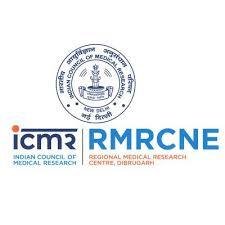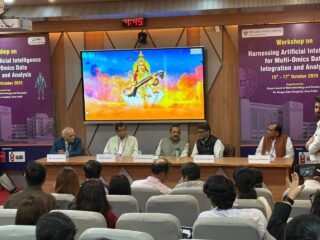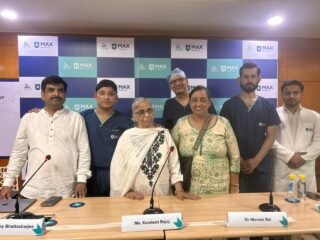New Delhi, 01 October, 2025: India is facing an alarming health challenge. A major study has revealed that diets dominated by refined carbohydrates and saturated fats, with insufficient protein, are strongly linked to the country’s growing epidemic of diabetes, obesity, and other metabolic disorders. The findings serve as a wake-up call for both policymakers and individuals to rethink eating patterns before the crisis escalates further.
The Study: A Nationwide Look at Diet and Health
The data comes from one of the largest nutrition and health studies conducted in India. Researchers examined the eating habits of more than one lakh adults across states, cities, towns, and villages. The goal was to connect dietary patterns with health outcomes like diabetes, obesity, and pre-diabetes.
Key findings include:
- Indians get around 62% of their daily calories from carbohydrates, much higher than in many countries.
- A significant portion of these carbs come from refined sources such as white rice, wheat flour, sugary foods, and processed grains.
- Saturated fat intake is also higher than recommended, even if overall fat consumption falls within global standards.
- Protein intake is low, making up only about 12% of calories, and mostly from plant sources such as pulses, with relatively little from dairy or meat.
This imbalance—too many carbs and unhealthy fats, too little quality protein—creates the perfect storm for rising cases of type 2 diabetes, obesity, and heart disease.
Why Carbs and Fats Matter
Food is more than just fuel; it influences how our body functions every second. Overloading on carbs and saturated fats disrupts the balance of hormones, blood sugar levels, and fat storage in the body.
1. Carbohydrate Overload
Refined carbs are digested quickly, spiking blood sugar and forcing the pancreas to release more insulin. Over time, this leads to insulin resistance, a major trigger for diabetes. Unlike whole grains or complex carbs, refined grains lack fiber, making it harder to regulate blood sugar.
2. Saturated Fats
High consumption of ghee, butter, red meat, and fried foods contributes to unhealthy cholesterol levels. This increases the risk of heart disease, fatty liver, and obesity.
3. Low Protein Intake
Protein is vital for muscle repair, satiety, and blood sugar regulation. Without enough protein, people often overeat carbs, worsening weight gain and sugar spikes.
The Substitution Effect: Small Changes, Big Benefits
Interestingly, the study highlighted that even small dietary changes can help. Researchers modeled what would happen if just 5% of calories from carbs were replaced with proteins from dairy or plant-based sources.
The result? A significant reduction in the risk of diabetes and prediabetes.
This means that adding an extra serving of dal, curd, or paneer while reducing rice or wheat could protect millions from developing lifestyle diseases. On the other hand, swapping carbs for red meat or extra fats didn’t provide similar benefits.
India’s Unique Nutrition Problem
Unlike Western nations where excess fat and processed meat drive obesity, India’s problem is different. Here, carbohydrates dominate, and they are often of poor quality.
- Rural diets rely heavily on rice or wheat, often without enough vegetables or protein.
- Urban populations, though exposed to more diverse foods, consume large amounts of processed snacks, fast food, and sugar-sweetened beverages.
- Food subsidies and government programs tend to emphasize cereals over pulses, unintentionally encouraging high-carb diets.
This creates a dual challenge: overnutrition in terms of calories but undernutrition in terms of quality nutrients.
Health Consequences Already Visible
The health burden is already showing in India’s disease statistics:
- India has over 100 million people with diabetes, the second-highest in the world.
- Another 130 million are pre-diabetic, at high risk of progressing to full-blown diabetes.
- Obesity rates are climbing rapidly, especially abdominal obesity, which is strongly linked to heart disease.
- Cardiovascular diseases are now the leading cause of death in India.
Unless dietary habits shift, these numbers will only rise.
What Experts Recommend
Doctors and nutritionists emphasize that Indians don’t need to give up carbs completely—but they need to choose better carbs and balance them with proteins and healthy fats.
Tips for a Healthier Plate:
- Switch to complex carbs: Replace white rice and refined flour with brown rice, millets (ragi, jowar, bajra), quinoa, and oats.
- Prioritize protein: Add more dals, beans, lentils, paneer, curd, fish, and eggs to meals.
- Use healthier fats: Replace ghee and butter with moderate amounts of mustard oil, olive oil, or groundnut oil. Include nuts and seeds for good fats.
- Cut added sugar: Reduce intake of sweets, packaged snacks, and soft drinks.
- Add vegetables and fruits: Fiber-rich foods slow down sugar release and support gut health.
- Practice portion control: Use smaller plates and follow the half-plate rule (half veggies, quarter protein, quarter carbs).
Lifestyle Beyond Diet
While diet is central, lifestyle changes also make a big difference:
- Daily exercise: At least 30 minutes of brisk walking or physical activity.
- Stress management: Stress hormones can worsen diabetes risk; yoga, meditation, or breathing exercises help.
- Regular health checkups: Early detection of high blood sugar or cholesterol can prevent complications.
- Adequate sleep: Poor sleep contributes to weight gain and insulin resistance.
Policy Implications
The study also raises bigger questions about India’s food system. Experts suggest:
- Reforming public food subsidies to include more pulses, millets, and dairy instead of primarily rice and wheat.
- Running public awareness campaigns about balanced diets.
- Encouraging food manufacturers to reduce added sugars and saturated fats in packaged foods.
- Supporting farmers who grow protein-rich crops like pulses and millets.
This shift would not only improve health but also support sustainable agriculture.
Challenges Ahead
Changing diets is not easy in a country where food habits are deeply cultural and economic. For many families, rice and wheat are affordable staples. Pulses, dairy, and healthier options often cost more. Awareness levels about nutrition remain low, particularly in rural areas.
But with India standing at the epicenter of a diabetes and obesity crisis, change is no longer optional—it’s urgent.
The new findings highlight a simple but powerful truth: It’s not just how much we eat, but what we eat that matters most.
India’s carb-heavy, fat-rich, protein-poor diets are fueling a silent epidemic of diabetes and obesity. But the good news is that even small, realistic changes—like swapping a portion of rice for dal or curd—can make a big difference.
The way forward lies in a combination of individual responsibility and systemic policy reforms. Together, these changes can help millions of Indians live healthier lives, free from the burden of preventable chronic diseases.






